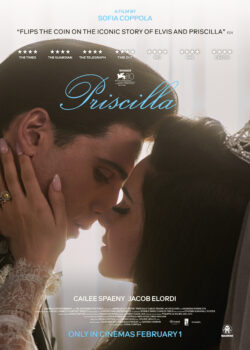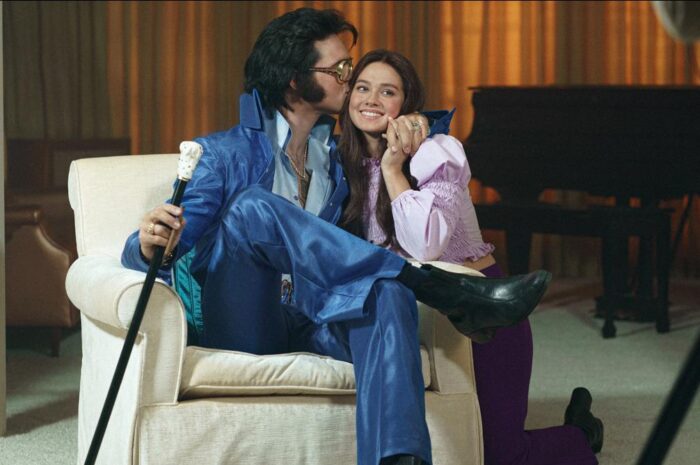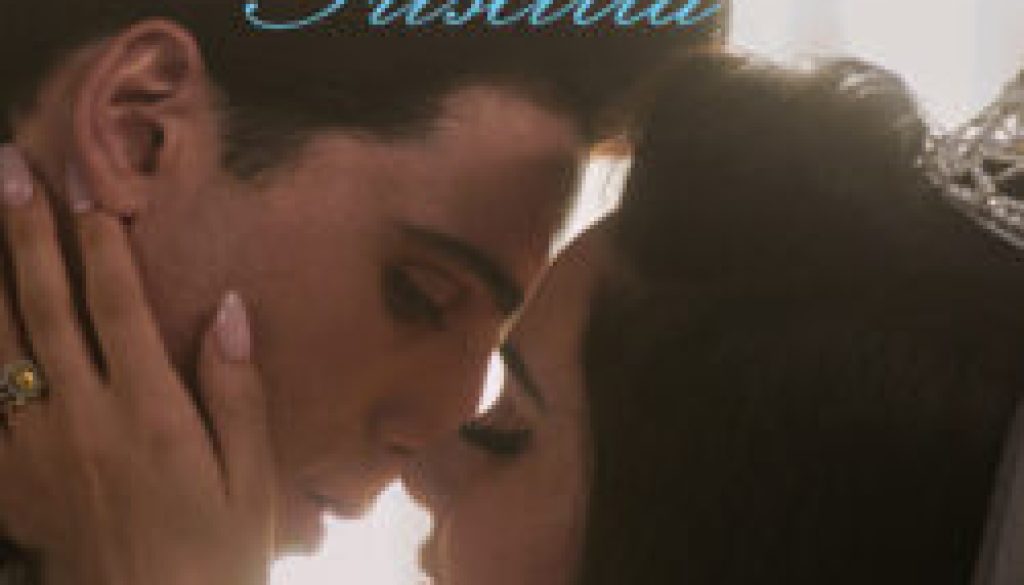Priscilla Dir: Sofia Coppola (13th Floor Film Review)
Sofia Coppola‘s stylish portrait of Priscilla is a frustrating shadow of the director’s best.
Starring: Cailee Spaeny, Jacob Elordi, Dagmara Domińczyk
Sofia Coppola is a master at capturing the inner lives of women with elegance and sensitivity. Often, her female characters, like the Lisbon sisters in The Virgin Suicides or  Charlotte in Lost in Translation, are trapped in gilded cages. Priscilla is based on a memoir by Priscilla Presley, who also gets an executive producer credit. It’s a film of two halves: one half focuses on when Priscilla meets Elvis; she’s 14 and still in high school. The other half is her life at Graceland, a pastel prison that had become a toil of love.
Charlotte in Lost in Translation, are trapped in gilded cages. Priscilla is based on a memoir by Priscilla Presley, who also gets an executive producer credit. It’s a film of two halves: one half focuses on when Priscilla meets Elvis; she’s 14 and still in high school. The other half is her life at Graceland, a pastel prison that had become a toil of love.
Coppola doesn’t judge its characters but tries to understand this insidious relationship. She sidelines Elvis, the “King of Rock and Roll”, for Priscilla to see how she came under his spell. At first, the film is sharp, cutting at the mythology of Elvis. As Priscilla makes her way up to his bedroom, a passing comment is made about how “She sure is young, isn’t she? Like a little girl.” Silence fills Priscilla’s world as she waits for Elvis to finish entertaining his party guests. She lives on an Army base in West Germany, where her father and Elvis are stationed. It is easy to see how Priscilla became ensnared in his wicked orbit—Elvis sweeps her off her feet before she can even grow up.
The film falters when Priscilla is invited to his Graceland compound in Memphis. Her life in this gilded cage is beautifully rendered, conveyed only through the terrific Cailee Spaeny as Priscilla. However, the film falls in upon itself as an audience can only glean so much from Spaeny’s muted reactions to Elvis’s actions. There is more to Priscilla than meets the eye; she is her own woman, but for a film billed as a biopic, we learn very little about her. Priscilla is at the whim of Elvis, his mood and his tempers, but Coppola won’t let us ruminate on what she’s interested in exploring: solitude and loneliness. She won’t let us into Priscilla’s inner world because the film is detached and alienated from its subject and audience. This choice is purposeful but makes Priscilla as a film feel superfluous and even redundant.

It’s easy to see what drew Sofia Coppola to make Priscilla. The director has always been interested in sad, lonely female characters who brush up against wealth. There’s a lot to like in the film if you’re a fan of Coppola: anachronistic needle drops, dreamlike montages, gorgeous gowns, insane hair-dos and Jacob Elordi as Elvis. But in the end, as Priscilla breaks free of Elvis, you can’t help but feel underwhelmed. Her story doesn’t have to be a spectacle, but as she exits the gates of Graceland, you still don’t know who Priscilla is. She remains little more than a projection for Elvis, Coppola and the audience.
Thomas Giblin
Priscilla opens in cinemas today. Click here for locations, showtimes and tickets.
- Challengers – Dir: Luca Guadagnino (Film Review) - April 24, 2024
- Civil War – Dir: Alex Garland (Film Review) - April 9, 2024
- Pearl Jam – Dark Matter (Monkeywrench/Republic) Album Review - April 1, 2024

